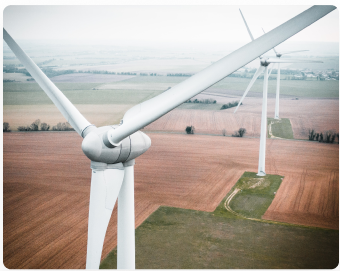NEWS & ARTICLES
A look at a sustainable energy future for Nigeria
August 13, 2018
5 MIN READ

NEWS & ARTICLES
A look at a sustainable energy future for Nigeria
August 13, 2018
5 MIN READ

Energy is an essential input for social development and economic growth. It provides basic needs and services such as heating, cooling, cooking, lighting, and transportation and is a critical production factor in virtually all sectors of industry. Sustainable energy development has currently taken over the lead as the most focal point in determining the developmental level of countries in the world. Nigeria is a country that is blessed with abundant natural resources such as fossil fuels and renewable energy. It has the proven reserve of crude oil of about 35 billion barrels and 187 Trillion SCF of gas. While engineers have great role to play, looking at the abundance of energy resources in Nigeria, there is great potential for a sustainable energy future for the country.

Nigeria is the largest oil producer in Africa, the eleventh largest producer of crude oil in the world and a member of the Organization of Petroleum Exporting Countries (OPEC). Nigeria is the 7th country in terms of proven reserve of natural gas in the world which was estimated to last for over 100 years, and exports gas to countries such as Spain, France, Portugal, Italy, Turkey, Mexico and the United States. Electricity or electrical energy plays a very important role in the socio-economic and technological development of a state and indeed every nation. Electricity demand in Nigeria far outstrips the supply that is very epileptic in nature. The country is faced with acute electricity supply problems, which hinders economic development in spite of its vast natural resources. It is widely accepted that there is a strong correlation between socio-economic development and the availability of electricity.
There is a very stable energy infrastructure in Nigeria. Nigeria has numerous petroleum refineries of that produce hundreds of thousands of barrels per day. Over the last few decades the refineries have been upgraded, but have not witnessed any increase in capacity despite the manifold increase in demand. Even the existing capacities were not operating to full capacities which necessitate the importation of refined petroleum products. Nigeria has fuel storage capacities of 1.071, 0.519 and 0.826 million m3 of PMS, DPK and AGO respectively. Nigeria has electricity installed capacity of approximately 10,000 MW in 2012 which was made up of hydro and gas power stations, but the average availability is slightly above 50% of the installed capacities. Some of the challenges Nigeria faces are; weak technological base, poor infrastructural facility, financial obstacles, energy policy issues, inadequate reliable data, poor utilization of resources, and inertia towards change.
While Nigeria has energy infrastructure in place, it needs proper management to find its way forward. The role of engineers will also play a very important part of actualizing a sustainable energy future. Engineers have a unique role when compared with other occupations in industrial organizations, and therefore are most affected by organizational changes. We will look at the role of engineers in depth in the future articles.

MARCH 5, 2020
Resilient Thinking: Abuja A Growing Menace of Waste
The unfortunate rapid growth of municipal solid waste in the capital city of Nigeria is something worrisome and treacherous to both the environment and population...

DECEMBER 29, 2019
Introducing e-waste management
In today’s world you are highly welcome to change your personal computer, cell phone, refrigerator, or for that matter any electronic or electrical gadget...

SEPTEMBER 22, 2019
Electricity utilization patterns for FCT, Abuja
As the population of the world increases, the demand for energy is increasing at a fast pace. Energy is needed for economic development and social welfare, and is one of t...